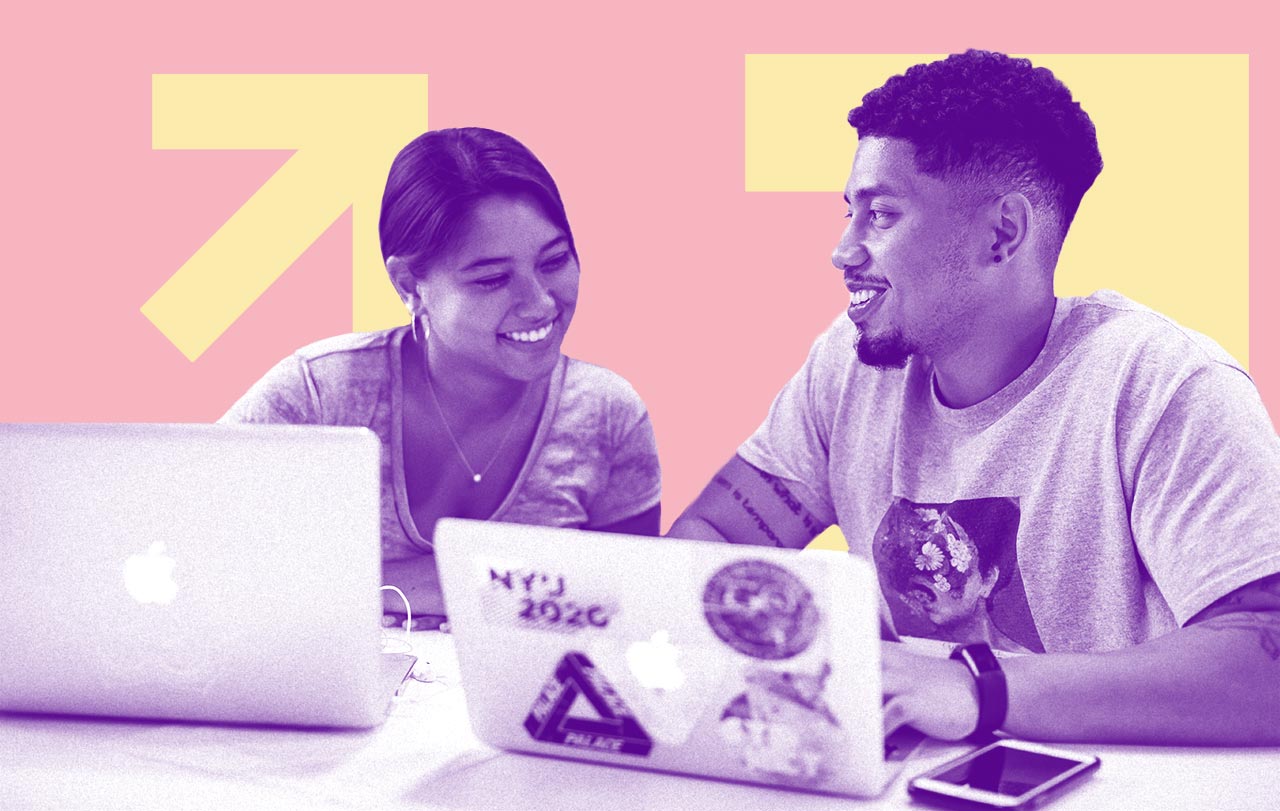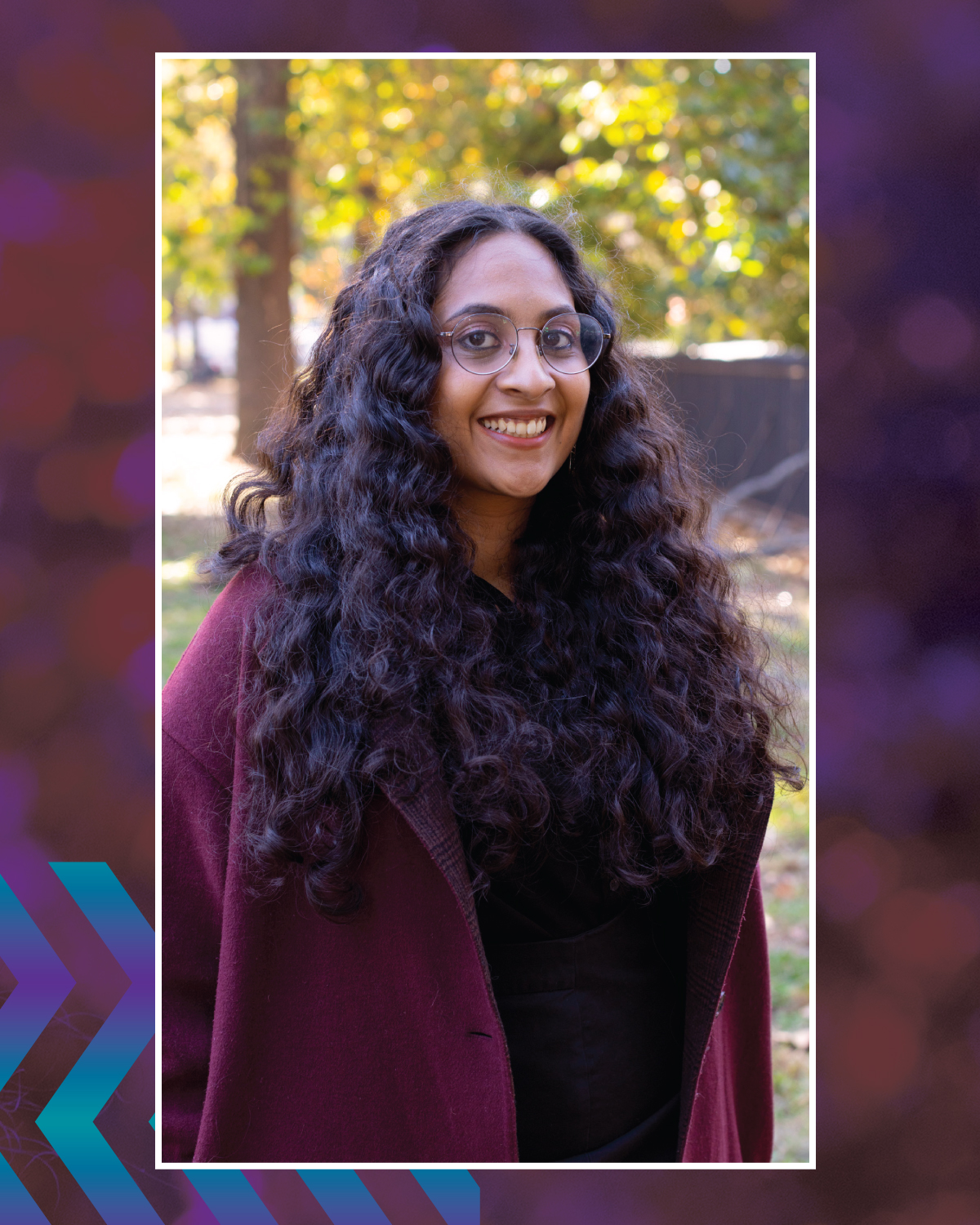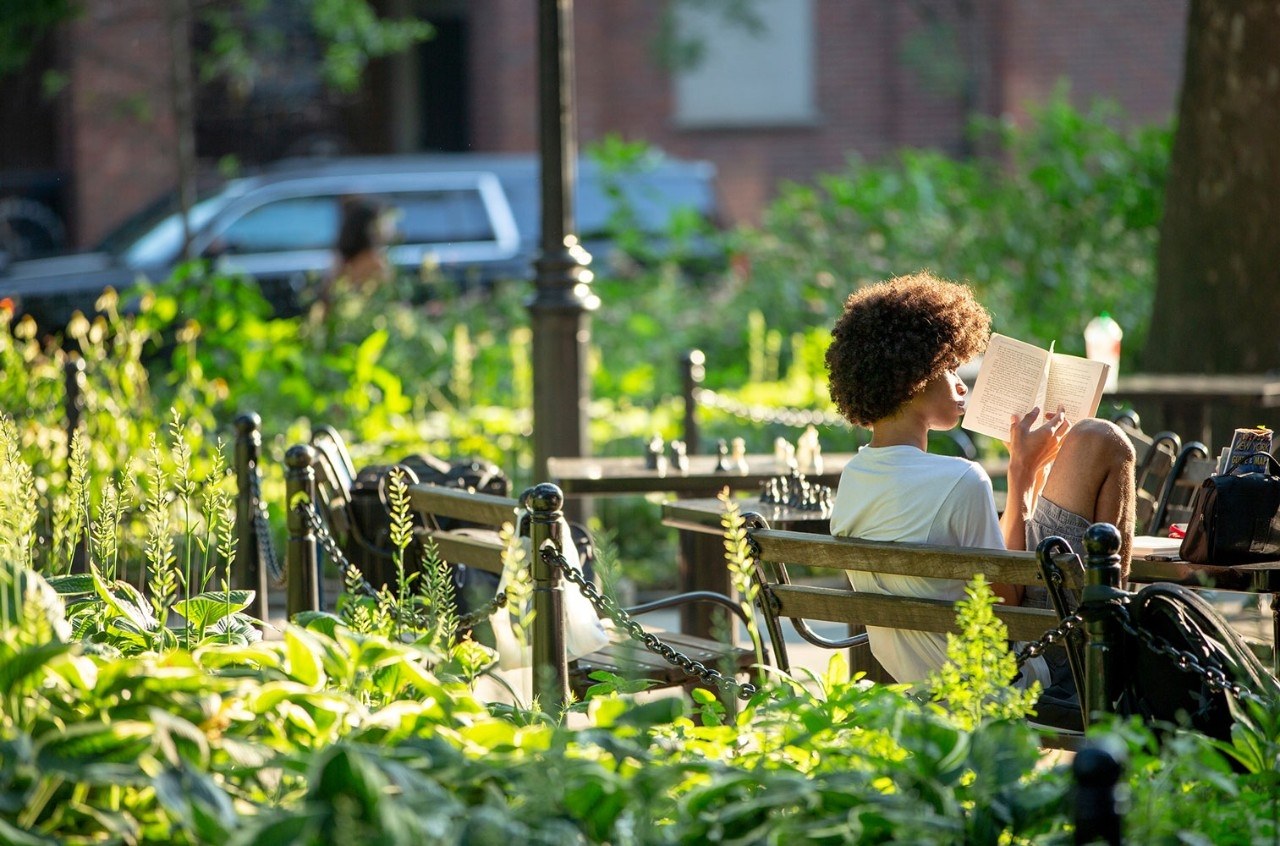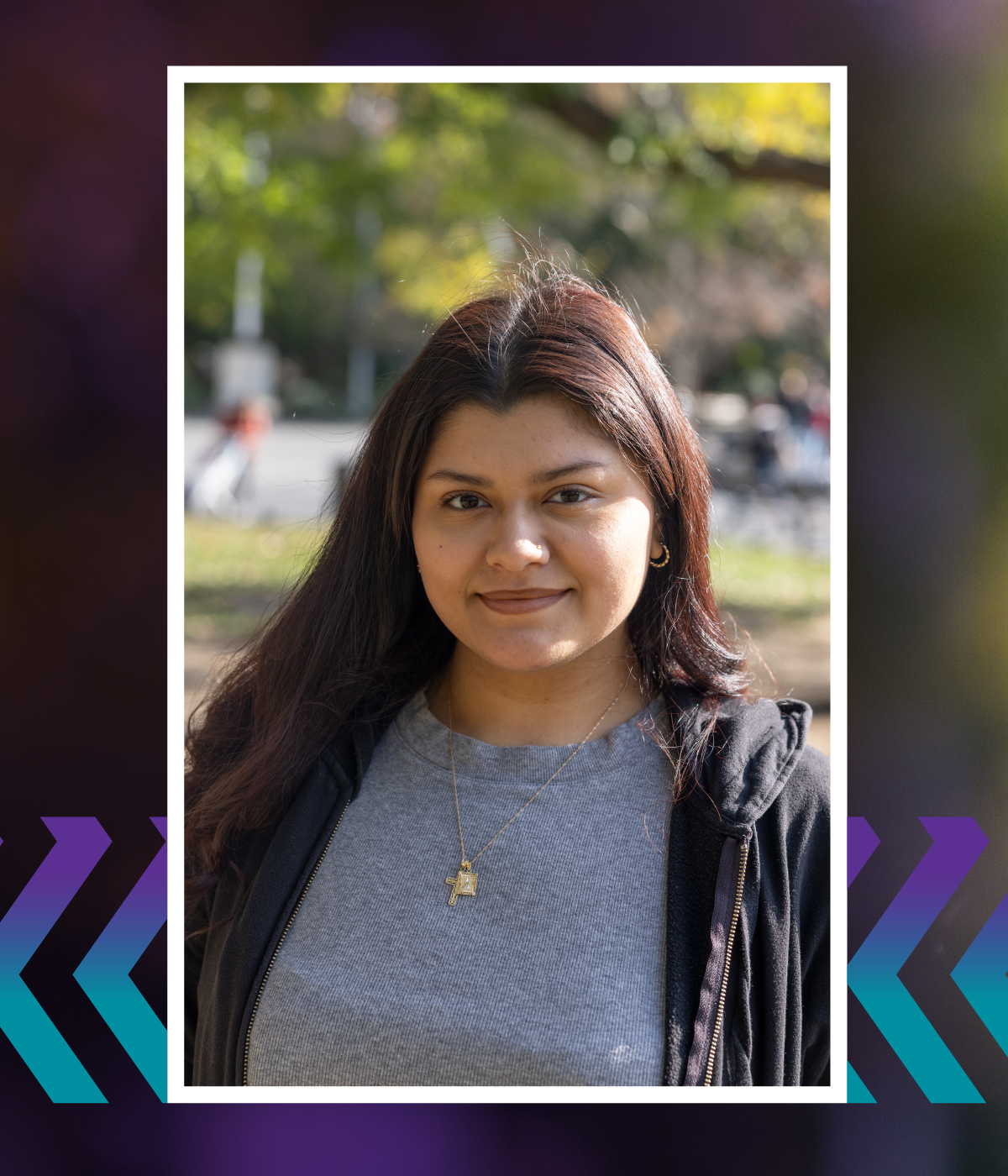
As a first-generation college student from a small high school in San Jose, California, Daniella Acosta’s transition to NYU could have been challenging. But the Liberal Studies (LS) Core helped ease her into college life. LS Core students spend their first two years taking liberal arts and sciences courses that introduce them to a variety of subjects and foster their critical thinking skills. Then, as juniors, they internally transfer to their chosen majors throughout NYU’s schools and colleges.
With small class sizes and the opportunity to try many different courses, LS allowed Daniella to experiment in a safe and accessible environment. “The Liberal Studies Core allows students to ease into the University. They can determine their interests and major in an open and welcoming environment,” she says. “It allowed me to explore my major and, ultimately, change what I wanted to do multiple times without changing schools.”
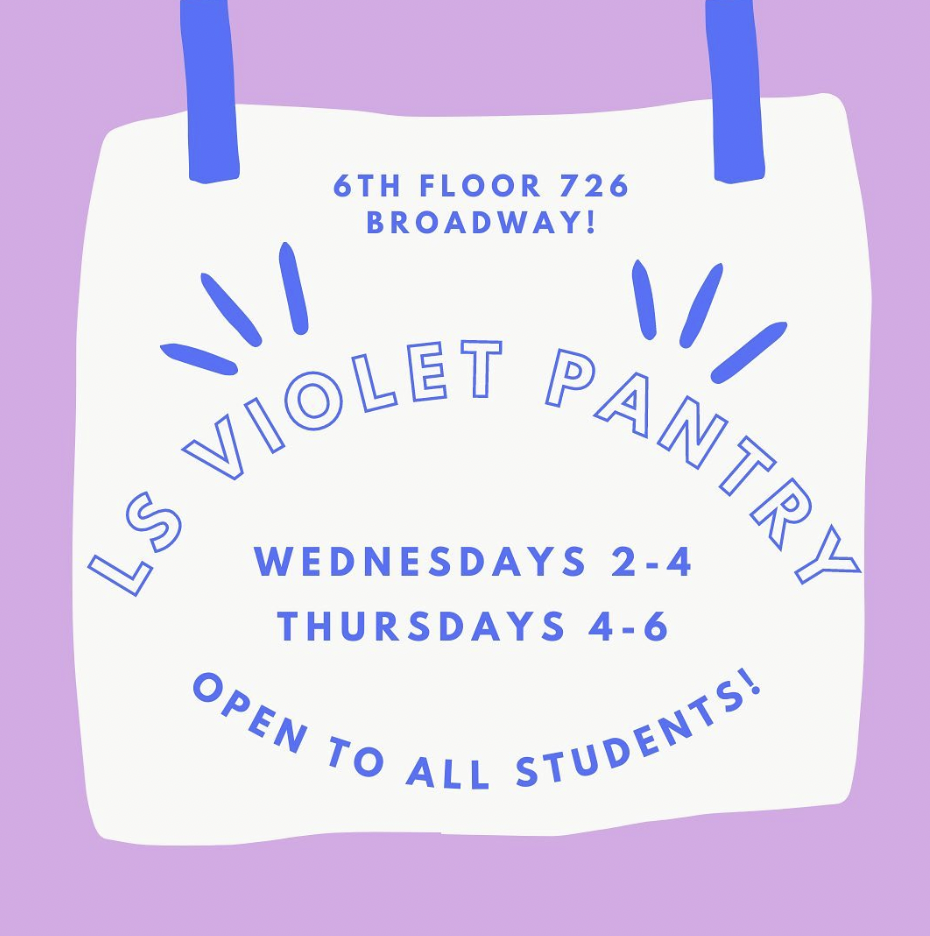
Coming Full Circle with Mutual Aid
During her time in the LS Core, Daniella opened the LS Violet Pantry. As NYU’s first food pantry for LS students, the Violet Pantry works on a mutual-aid basis. Mutual aid allows people to join together to meet each other’s needs, immediately and without the need for systemic change. It can involve the exchange of money, services, or goods, and it’s usually grassroots in nature. In fact, NYU students have a rich history of working with mutual-aid organizations in New York City and beyond.
At the LS Violet Pantry, NYU students with access to more resources than they need can donate their excess. Often, this takes the form of leftover dining dollars, which can only be used for purchases at NYU dining halls. Then, students experiencing food insecurity can visit the pantry each week to pick up snacks, canned goods, clothing, and books at no cost.
Daniella grew up using food pantries, so opening the LS Violet Pantry was a perfect way for her to give back and connect with other students on campus. “The great thing about the pantry is the diverse range of students who utilize it,” she says. “I’ve had many conversations with students who use it, and they’ve shared how grateful they are to have this resource.”
Additionally, the pantry has helped Daniella and her fellow student workers gain new skills. “There are different aspects and roles that go into maintaining the pantry. For example, there’s inventory, marketing, fundraising, and networking with other pantries,” she explains. Daniella focuses on marketing, acting as a bridge between the pantry and the NYU community. Together, she and the other pantry ambassadors ran a successful Rising Violets campaign, raising enough money to fund the pantry for its first year.

Tying Together Theory and Practice
Today, Daniella is a junior majoring in Social Work at the Silver School of Social Work. Thanks to the LS Core, the move was easy. “When I decided to complete my education at NYU Silver, I found the transition to be very natural. The class sizes are very similar and both schools highlight conversations about humanities and politics,” she affirms.
What’s more, her coursework at Silver often ties directly into her work with the LS Violet Pantry. “A class that specifically helped me in reaching out to students who could benefit from the pantry was Skills in Interpersonal Communication. The discussions we had about race, socioeconomic status, and privilege allowed me to identify who would benefit most from the on-campus resource,” she explains. “Many people would be surprised by how common it is for college students to experience food insecurity. As a Social Work major, I hope to look at this issue at its core and help create solutions and educate others. No person should have to worry about when their next meal will be.”
Turning Toward the Future
After graduating next year, Daniella hopes to continue her education and pursue a Master of Social Work. No matter what, she plans to keep fighting for opportunities and resources for low-income, Black, and Indigenous communities and people of color. And until then? “A goal I have for the pantry is to increase attendance! Since this is only the pantry’s second year, many students aren’t aware of it. So we need to spread the word,” she says. “I hope we can continue to destigmatize pantries and educate others about what it means to experience food insecurity.”

